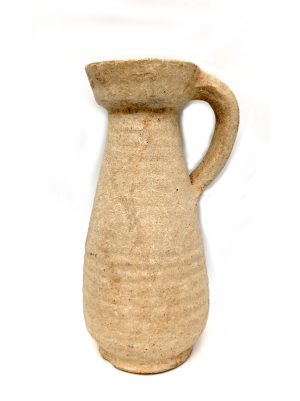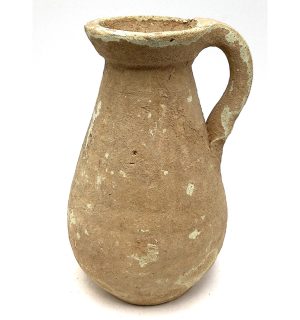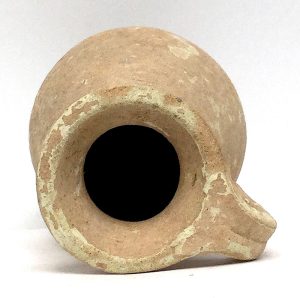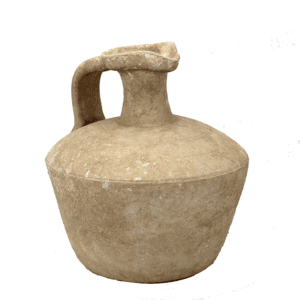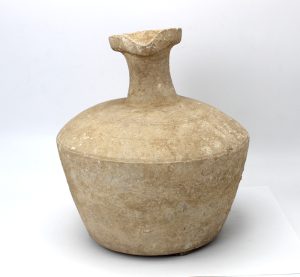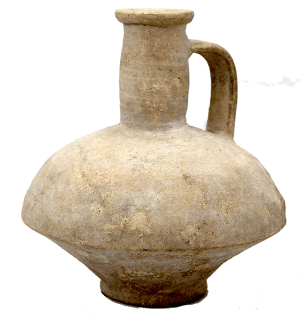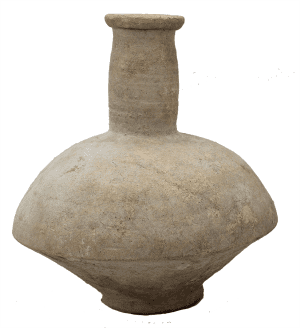Ancient Oinochoe Wine Jug, Roman North Africa (3197B)
Original price was: $295.00.$195.00Current price is: $195.00.Ht: 6.25” W: 3.25” D: 2.75” | FREE SHIPPING WITHIN CONTINENTAL U.S. !
Made in Roman North Africa, this small pouring vessel made of durable materials was called coarse wear for everyday use. Elegant in its simplicity It was made with a potters wheel. A fine small piece of history.

